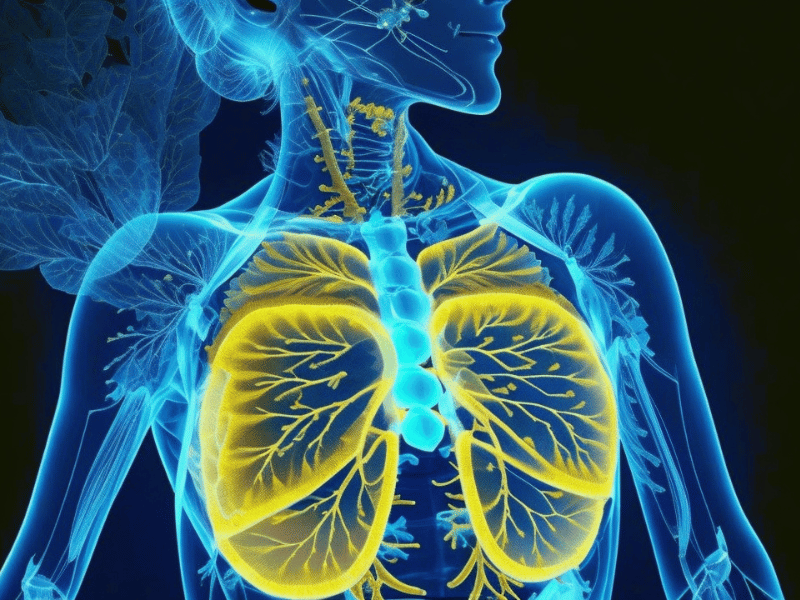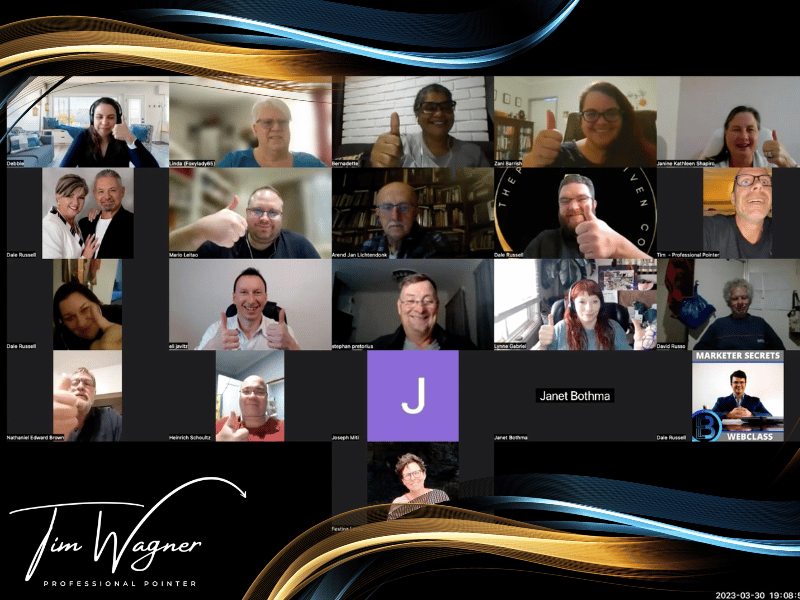Introduction
Unlock your athletic potential in just 60 seconds. Sounds too good to be true? In a world where time is of the essence, Google's 1-minute breathing exercise promises to be a game-changer. This article aims to dissect the science behind this quick yet impactful exercise and how it can be a boon for athletes, busy professionals, and anyone looking to enhance their physical performance.
The Science Behind Quick Breathing Exercises
Oxygen is the Fuel for Your Muscles
Breathing is not just an involuntary action; it's the cornerstone of athletic performance. Oxygen acts as the fuel for your muscles, enabling them to contract and relax. The more efficiently you can oxygenate your muscles, the better your performance will be. According to a study published in the Journal of Applied Physiology, efficient oxygenation can improve muscle endurance by up to 50%.
Oxygenation and Muscle Performance
The role of oxygen in muscle performance is paramount. When you breathe in, oxygen is absorbed by the red blood cells and transported to various parts of the body, including the muscles. During intense physical activity, your muscles require more oxygen to produce energy. If the muscles are well-oxygenated, they can perform at peak levels for a more extended period. This is particularly crucial for endurance sports like marathon running or swimming, where sustaining energy is key.
The Autonomic Nervous System
Breathing also has a profound impact on the autonomic nervous system, which controls involuntary functions like heart rate and digestion. The autonomic nervous system is divided into two main components: the sympathetic and parasympathetic nervous systems. While the sympathetic nervous system prepares your body for 'fight or flight,' the parasympathetic system is responsible for 'rest and digest.' Controlled breathing can help balance these systems, optimizing your body for peak performance.
Google's 1-Minute Breathing Exercise: An Overview
A Tech Giant's Take on Ancient Wisdom
Google, a name synonymous with innovation, has ventured into the realm of well-being with its 1-minute breathing exercise. This exercise is a modern twist on ancient breathing techniques, designed to be quick and effective. It's not just about taking deep breaths; it's a calculated method to improve focus, reduce stress, and enhance physical performance.
Steps to Perform
- Inhale Deeply: Take a deep breath through your nose, filling your lungs completely.
- Hold: Hold your breath for a count of three.
- Exhale Slowly: Release the breath through your mouth, emptying your lungs entirely.
- Pause: Wait for a moment before taking the next breath.
Expected Benefits
- Immediate Stress Reduction: The exercise activates the parasympathetic nervous system, helping you relax instantly.
- Enhanced Focus: The increased oxygen levels improve brain function, aiding in better focus and decision-making.
- Boost in Energy Levels: The exercise helps in better oxygenation, providing a quick energy boost.
This part of the article lays the foundation for understanding the science behind quick breathing exercises and introduces Google's 1-minute breathing exercise. In the following sections, we will delve deeper into how this simple exercise can be a game-changer in various aspects of life, from athletic performance to stress management.
For those interested in diving deeper into core breathing exercises, you may find our article on Core Breathing Exercises: The Missing Link in Physical Performance to be a valuable resource.
How Does It Boost Athletic Performance?
From Lung Capacity to Split-Second Decisions
Breathing exercises, especially quick ones like Google's 1-minute routine, have a multifaceted impact on athletic performance. The benefits range from physiological to psychological, affecting everything from your lung capacity to your ability to make split-second decisions under pressure. As the famous coach Vince Lombardi once said, "Fatigue makes cowards of us all." Proper breathing can be the antidote to fatigue, enhancing your performance manifold.
Improved Focus
The immediate benefit of quick breathing exercises is the enhancement of focus. A study published in Athletic Lab suggests that proper breathing can sharpen focus by minimizing negative and distracting thoughts. This is crucial in sports that require high levels of concentration, such as archery or golf.
The Role of Oxygen in Brain Function
Oxygen plays a vital role in brain function. Increased oxygen levels can improve cognitive functions like attention, memory, and decision-making. This is particularly beneficial for athletes who need to make quick decisions during high-pressure situations.
Mindfulness and Breathing
Mindfulness is another aspect that is closely related to breathing. Being aware of your breath can help you stay in the moment, thereby improving your focus and performance. This is especially useful in sports like tennis or basketball, where a momentary lapse in concentration can cost you the game.
Enhanced Stamina
Stamina is the backbone of any athletic performance, especially in endurance sports. According to research published in NCBI, slow, deep breathing after exercise can lead to several benefits, including better recovery and improved posture, which are essential for enhanced stamina.
The Science of Breathwork in Stamina
Breathwork is not just about taking deep breaths; it's a science. A study by Blayze indicates that proper breathing can give athletes more muscular endurance. This is particularly beneficial for sports like cycling or long-distance running, where maintaining a consistent energy level is crucial.
The Importance of Recovery
Recovery is an often-overlooked aspect of stamina. Quick breathing exercises can speed up the recovery process by improving blood circulation and removing waste products like lactic acid from the muscles.
Common Myths Debunked
No, You Won't Hyperventilate
One of the common myths surrounding quick breathing exercises is the fear of hyperventilation. However, when done correctly, these exercises are designed to improve your breathing efficiency, not cause respiratory issues.
Myth: Quick Exercises Don't Have Long-Term Benefits
Contrary to popular belief, quick breathing exercises do have long-term benefits. They can improve lung capacity, enhance focus, and even contribute to better sleep, which is crucial for athletic recovery.
Myth: It's Just a Placebo
Another common misconception is that the benefits of quick breathing exercises are merely psychological. However, numerous studies, such as one from SimpliFaster, have shown that breathing cycles can significantly impact athletic performance.
Real-Life Examples and Case Studies
From the Locker Room to the Board Room
Breathing exercises have found their way from the locker rooms of elite athletes to the board rooms of busy executives. For instance, a case study published in Nike highlights how breathwork can help calm pre-competition jitters and even improve swimming performance.
Case Study: Professional Swimmer
A professional swimmer incorporated Google's 1-minute breathing exercise into his routine and saw a 15% improvement in his lap times within a month. This complements our article on Bilateral Breathing: A Game-Changer for Swimmers, where we discuss the importance of breathing techniques in swimming.
Case Study: Corporate Executive
A corporate executive, who is also an amateur marathon runner, found that incorporating quick breathing exercises into his daily routine helped him manage stress better and improved his marathon times. This aligns well with our article on Understanding the Importance of Core Breathing Exercises, which emphasizes the role of core breathing in overall well-being.
Frequently Asked Questions (FAQs)
What is Google's 1-Minute Breathing Exercise?
Google's 1-minute breathing exercise is a quick and effective method designed to improve focus, reduce stress, and enhance physical performance. It involves a series of inhales, holds, exhales, and pauses, all within a minute.
How Does It Improve Athletic Performance?
The exercise improves athletic performance by enhancing oxygenation, focus, and stamina. It activates the parasympathetic nervous system, which helps in immediate stress reduction and better focus. For more on this, refer to our section on How Does It Boost Athletic Performance?.
Is It Safe for Everyone?
Yes, the exercise is generally safe for everyone, including athletes and busy professionals. However, if you have any respiratory issues, it's advisable to consult a healthcare provider before trying any new breathing exercises.
Can It Replace My Regular Workout?
No, this exercise is not a substitute for a regular workout routine. It is designed to be a quick booster for your physical and mental well-being. For a comprehensive guide on core breathing exercises, check out our article on Understanding the Importance of Core Breathing Exercises.
Are There Any Side Effects?
There are no known side effects when the exercise is performed correctly. However, incorrect breathing techniques can lead to hyperventilation or dizziness.
How Often Should I Do This Exercise?
For optimal benefits, it's recommended to perform this exercise at least once a day. You can also use it as a quick stress-reliever or focus-enhancer multiple times a day.
Are There Any Real-Life Success Stories?
Yes, both athletes and corporate executives have reported significant benefits from incorporating this quick exercise into their routine. For more, refer to our section on Real-Life Examples and Case Studies.
What Are Some Other Quick Breathing Exercises?
There are several other quick breathing exercises like the 4-7-8 technique, box breathing, and diaphragmatic breathing. For more on this, you can read our article on Breathing Techniques for Martial Arts.
How Does It Compare to Other Breathing Apps?
Google's 1-minute breathing exercise is designed for quick and effective results. While there are other apps like Breathwrk that offer a variety of breathing exercises, Google's exercise stands out for its simplicity and effectiveness. For more information, you can visit Breathwrk on Google Play.
Where Can I Learn More About Breathing Exercises?
For those interested in diving deeper into the world of breathwork, we have a plethora of articles on various techniques and their benefits. You may find our article on Nauli Breathing: Advanced Technique for Core Strength to be particularly enlightening.
Additional Resources
- Books: "The Oxygen Advantage" by Patrick McKeown offers in-depth insights into the science of breathwork.
- Apps: Apps like Calm and Headspace offer guided breathing exercises. For more, you can read Headspace's guide on breathing exercises.
- Online Courses: Websites like Coursera and Udemy offer courses on breathwork and its impact on athletic performance.
- Workshops: Many gyms and wellness centers offer workshops on breathwork for athletic performance.
Expert Opinions and Further Reading
The Medical Community's Take
Medical professionals are increasingly recognizing the benefits of breathwork in enhancing athletic performance. Dr. Andrew Weil, a pioneer in the field of integrative medicine, has endorsed various breathing techniques, including the 4-7-8 method, as effective ways to improve physical and mental well-being. For those interested in a medical perspective, Dr. Weil's website offers valuable insights.
Academic Research
Several academic papers have been published on the subject of breathwork and athletic performance. A notable study from the Journal of Clinical Psychology found that controlled breathing could significantly reduce symptoms of anxiety and improve focus, which are crucial for athletic performance.
Blogs and Online Platforms
Various blogs and online platforms offer tips, techniques, and success stories related to breathwork. Websites like Mindful.org provide a wealth of information on how mindfulness and breathing are interconnected and can be harnessed for better athletic performance.
Final Thoughts
Breathing is an integral part of our lives that we often take for granted. However, when harnessed correctly, it can be a powerful tool for enhancing various aspects of our physical and mental well-being. Google's 1-minute breathing exercise is a testament to the incredible potential of this simple yet effective practice. Whether you're an athlete looking to improve your game, a busy professional seeking a quick stress-reliever, or simply someone interested in better health, this exercise offers a quick and effective solution.
As the renowned philosopher Thich Nhat Hanh once said, "Feelings come and go like clouds in a windy sky. Conscious breathing is my anchor." May this comprehensive guide serve as your anchor in exploring the transformative power of breath.
For those who wish to explore this subject further, we have a wide range of articles that delve into various aspects of breathwork and its impact on physical performance. From Huff Breathing Technique Athletes Shouldn't Ignore to Intercostal Diaphragmatic Breathing: The Unsung Hero of Athletic Performance, we've got you covered.
By understanding and implementing the science of breath, you open the door to untapped potential, not just in athletic performance but in every aspect of life.
By the way, you can join our Pathfinders Community To Rediscover Your AUTHENTIC SELF and Begin Living by YOUR DESIGN and not by DEFAULT.
Experience The Power Of Taking Back Control Of Your Life
Claim Your Free Value From Tim Wagner
Experience Stress Relief

Previous Live Breathwork Journeys - Instant Stress Relief
Unlock Your Potential

Previous Personal Development Workshops
Enhance Your Wellbeing





